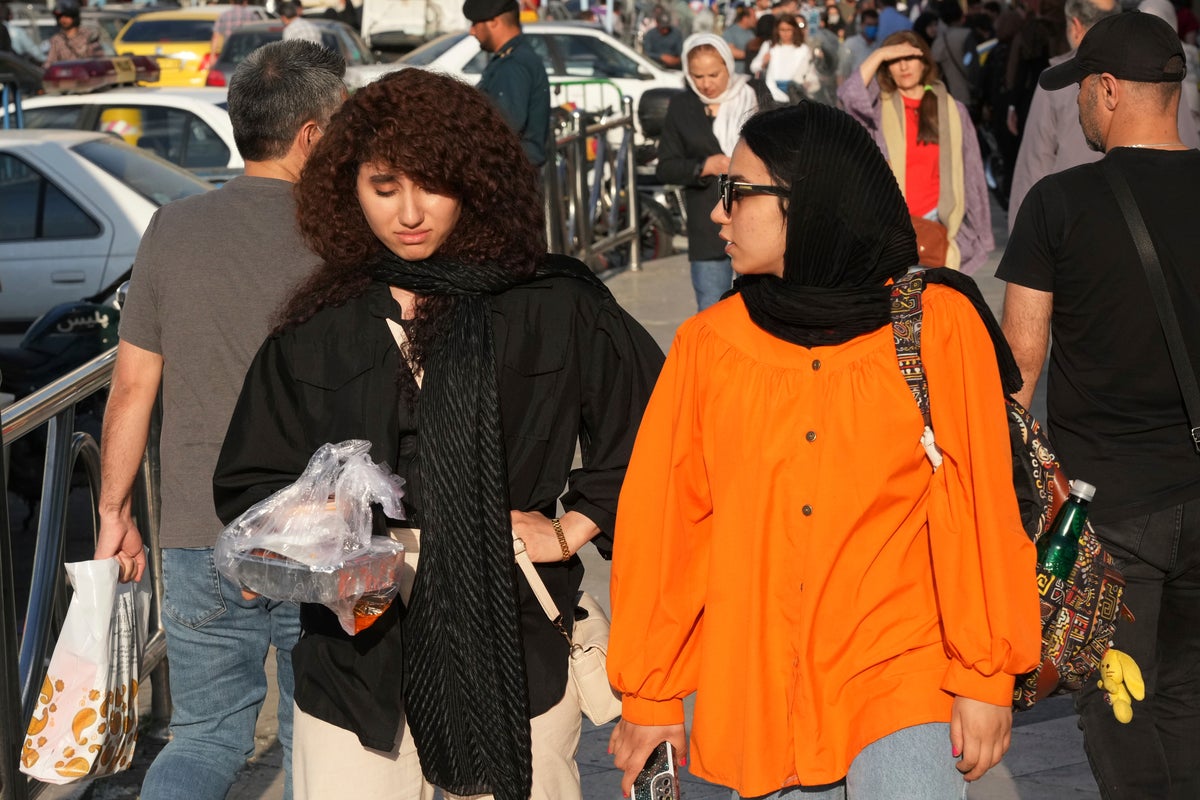
Women in Iran face up to 10 years in jail for not wearing a hijab after the country’s parliament passed a draconian law described by the United Nations as “gender apartheid”.
The Iranian parliament on Wednesday approved the “Support for the Culture of Hijab and Chastity” legislation, which imposes heavier penalties on women who refuse to wear the mandatory Islamic headscarf in public.
Business owners who serve women not wearing a hijab and activists who organise protests against it will also be punished under the new law.
A panel of UN experts expressed grave concern over the new law when it was under review in the Iranian parliament earlier in September. It said: “The draft law could be described as a form of gender apartheid, as authorities appear to be governing through systemic discrimination with the intention of suppressing women and girls into total submission.”
Iranians protest 22-year-old Mahsa Amini's death after she was detained by the morality police in Tehran— (Copyright 2022 The Associated Press. All rights reserved.)
Under Iran's previous Islamic Penal Code, women seen in public without a headscarf, could be sentenced to between 10 days and two months in prison, or receive a fine. The experts said that the move towards tougher sanctions would impose compulsory veiling on girls from the age of seven.
The law change comes days after the anniversary of the death of Mahsa Amini, a 22-year-old woman who had been detained by morality police for violating the country’s dress code. Her death in custody ignited months of protests prompting many to call for the overthrow of Iran’s theocracy.
The demonstrations sparked by Amini's death on 16 September 2022 died down following a heavy crackdown on dissent in which more than 500 protesters were killed and over 22,000 detained.
Mahsa Amini, a 22-year-old woman who had been detained by the morality police for violating the country’s dress code— (EPA)
But many women continued to flaunt the rules on wearing hijab, prompting a new campaign to enforce them over the summer. Iran's clerical rulers view the hijab law as a key pillar of the Islamic Republic and blamed the protests on Western nations, without providing evidence.
The protesters said they were motivated by anger over the dress code as well as what they see as the corruption and poor governance of the country's ruling clerics.
The bill, which was approved by 152 lawmakers in Iran’s 290-seat parliament, must be approved by the Guardian Council, a clerical body that serves as a constitutional watchdog. If passed, it would take effect for a preliminary period of three years.







